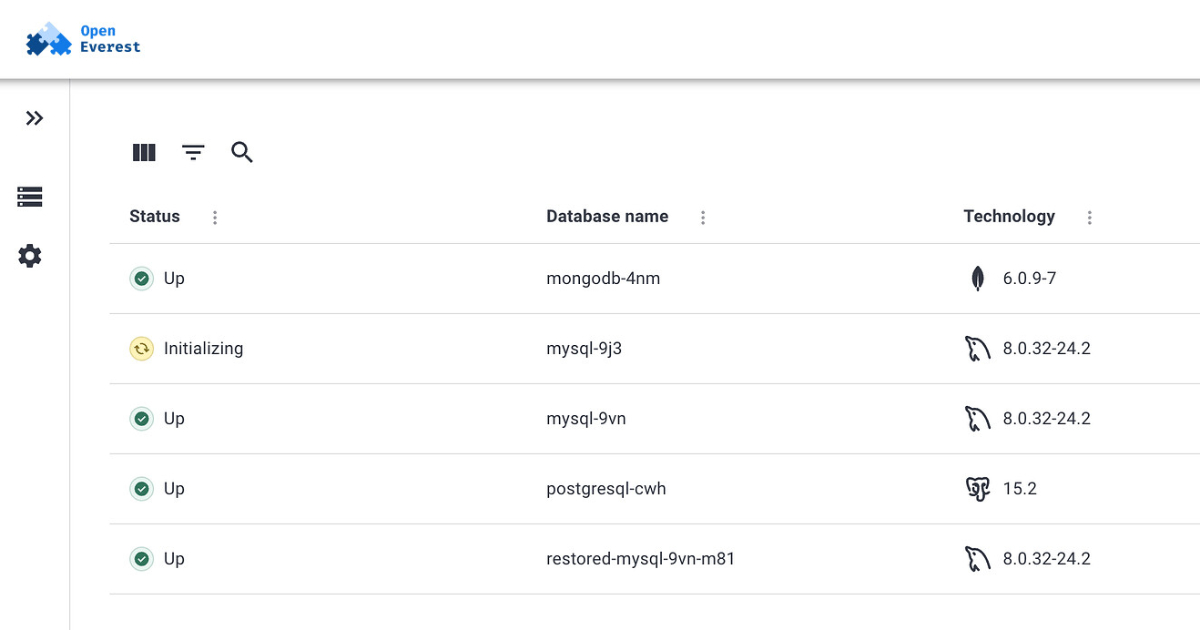Deeper Dive: Our Top Tested Picks
EDITORS’ NOTE
Nov. 1, 2025: With this update, our lineup of recommended privacy apps remains unchanged. The existing picks have been vetted for currency and availability.
Best for Email Encryption With Many Bonuses
Proton Mail
- End-to-end encrypted email with other users of the service
- Can password-protect messages to nonusers
- Access to VPN, password management, secure calendar, cloud storage
- SimpleLogin temporary email service available
- Disables tracking via images in email
- Free tier available
- Even Unlimited edition has a few limits
Shifting to protecting your email with Proton Mail’s encryption means selecting a new email address, but doing so has some benefits. In particular, you leave behind all the spammers and scammers that know your old address. And if you’ve ever used a web-based email system, you already know how to use Proton Mail.
You can give Proton Mail a try for free, though you’ll run into some limitations. Upgrading to the Plus edition removes those limitations, while upgrading to Ultimate gets you full access to the pantheon of Proton tools: Proton Mail, Proton VPN, Proton Drive, and the Proton Pass password manager.
Learn More
Proton Mail Review
Best for Free, Simple Email Encryption
PreVeil
- Simple, powerful encryption for your email
- Works with existing email accounts
- Integrates with Gmail and Outlook
- Secure encrypted file sharing with fine-grained permissions
- Sophisticated key recovery system
- Must install manually on unsupported email clients
Once you start using PreVeil, you don’t have to worry about anyone snooping on your email conversations. It’s easy to use, and you don’t have to switch away from your familiar email address. As long as your existing account is with Google, Yahoo, or Microsoft, it’s totally free. You only pay if you want to use an unsupported email provider or protect multiple accounts.
With PreVeil, you don’t have to remember a password (or have your password manager remember it). Your ownership of the email account proves your identity, and a system of “wrapped keys” protects your messages from any possibility of snooping. If you somehow lose access to all devices keyed to your PreVeil account, you recover using a very clever system that relies on secrets held by multiple friends or associates.
Along with encryption for your email, a PreVeil account gets you 10GB of secure encrypted file storage online. Access to a secure file is a snap for you, impossible for others. Unless that is, you’ve securely shared the file. This service gives you encrypted email worthy of high-security government or corporate accounts but at no cost.
Learn More
PreVeil Review
- Excellent device-level security
- Supports Windows, macOS, Android, and iOS
- Thorough identity and credit monitoring
- Dedicated resolution specialists help remediate identity theft
- Identity theft insurance
- No-limits VPN
- Parental content filter not fully effective
- Password manager lacks advanced features
- Cannot actually prevent identity theft
Bitdefender Ultimate Security builds on the powerful device-level security protection supplied by Bitdefender Total Security, itself an Editors’ Choice winner. Its core antivirus protection routinely earns the best scores from independent testing labs around the world, and not just on Windows. Those labs also praise its Android and macOS protection. Among its many other features are a no-limits VPN to secure your online communications and a password manager to ensure the safety of your accounts.
To this traditional security, Bitdefender adds a full set of identity protection features backed by partner TransUnion. It monitors the Dark Web for telltale signs your identity has been compromised and handles tasks such as checking or freezing your credit. You can use its Credit Simulator to check what effect certain actions would have on your credit score, things like paying off all your credit cards, applying for a car loan, or going bankrupt. If the worst happens and thieves abuse your identity details, a dedicated resolution specialist works through the recovery process with you.
Learn More
Bitdefender Ultimate Security Review
- LifeLock identity theft remediation
- Excellent device-level security protection
- Full VPN with no bandwidth limits
- Supports Windows, macOS, Android, and iOS
- Million-dollar identity protection guarantee
- Security protection is limited on iOS devices
- No parental control or backup for macOS
- Cannot actually prevent identity theft
LifeLock is the OG when it comes to identity protection services. At its most extensive (and expensive) Ultimate Plus tier, it offers identity protection and abuse detection at a level of detail just not found in the competition. Even at its less expensive Select level, it’s packed with defenses against identity theft. If your identity is compromised despite these efforts, the company will spend as much time and money as necessary for full remediation, up to multiple millions of dollars.
Opting for the highest tier of identity security also offers impressive protection for your devices, starting with unlimited licenses to install security software on your Windows, macOS, Android, and iOS devices. You also get unlimited VPN licenses with no bandwidth limits and 500GB of hosted storage for your online backups at that top tier.
Learn More
Norton 360 With LifeLock Review
Best for Complete Privacy Protection
Optery
- Finds and removes personal data from hundreds of brokers
- Free tier offers detailed DIY data removal steps
- Links directly to found personal data
- Provides detailed verification of removals
- Optional AI processing for greater accuracy
- Top tier offers custom removals
- Doesn’t distinguish removed data from never-found data
Even when you’re careful about how much you reveal online, you can’t help but leave traces. Companies you send email to necessarily receive your email address. Online merchants have your physical address. Your purchase of real estate is a matter of public record. And so on. Data brokers hoover up all this information, snap related items together, and create a profile of you that they can sell, use, or abuse. Collecting public information is legal, but the collectors are legally bound to remove your info if you ask. Optery finds your data profiles online and either handles removal for you or gives you the tools to do the job yourself.
If you go the DIY route, Optery is free—it doesn’t even request a credit card. For a better experience, you can subscribe at three pricing tiers, up to the Ultimate tier where Optery handles opting you out from hundreds of brokers. Its unique system shows you exactly what the brokers have on you and, when possible, gives you a direct link to your profile. After removal is complete. Optery reports on its work, including links to verify the data is gone.
Best for Shopping Without Being Tracked
IronVest
- Stops spam calls and emails
- Hides credit card details
- Protects and automates SMS passcode authentication
- Manages passwords
- Blocks tracking of your browsing activities
- Local-only password storage can be lost if you don’t back up
- Some minor rough edges
Your subscription to IronVest brings a veritable smorgasbord of privacy-enhancing features and services. Its masked emails feature automates the use of a different disposable email address for every transaction. If one of those masked emails starts getting spam, you can just delete it, and you know which merchant sold you out.
What’s the use in masking your email when you’re giving the merchant something even more sensitive—your credit card number? IronVest masks card numbers, too, and each masked card only holds enough value to pay the particular transaction. No shady merchant can charge you extra or fake another transaction on your card.
You can have all the masked emails you want, but masked cards require a small payment because IronVest expends resources processing the payment. Masked phone numbers are still more limited; you get just one. But when you use that masked phone number, you can be sure your contact won’t benefit by selling it to robocallers or text spammers. A new Passcode Protection feature captures SMS passcodes sent to the masked number and fills them for you automatically.
It’s a small step from tracking your disposable email addresses to tracking your logins for all those websites. IronVest includes a complete, if basic, password manager. It also fills personal data in web forms, letting you use data you’ve entered, masked versions of your data, or a mix of the two.
IronVest securely syncs your password and payment data across all your PCs, Macs, and mobile devices. Its browser extensions offer full access to program features and include an active Do Not Track component that foils advertisers and other trackers. On top of all that, IronVest spells out how it handles your data in clear, simple detail. It’s a cornucopia of privacy protection.
Learn More
IronVest Review
- Foils websites that track you using fingerprinting
- Actively detects tracking attempts
- Can clear cookies and other browser traces
- Configures Windows for better privacy
- Tracker blocking visible only in Chrome
- No transparency regarding Windows privacy settings
Advertisers really care what you do online. The better they can profile you, the more they can target ads. A nice, juicy personal profile is also a commodity they can sell. With the proliferation of active Do Not Track systems, some trackers have switched from cookies for tracking to a technique called browser fingerprinting. Avast AntiTrack stands square in snoops’ way, ensuring that your browser does its job without painting a target on your back.
Every time you visit a website, your browser sends a ton of information. It has to send your IP address to receive the requested pages. But it also sends the browser version, OS details, and even the fonts installed on your PC. Nominally, this information helps the website fine-tune your browsing experience. But there’s so much data spewing from the browser that trackers can easily create a unique fingerprint and thereby recognize you when you visit a different site.
AntiTrack doesn’t suppress the info coming from your browser, as that could cause problems with some sites. It just mixes things up a little, presenting a slightly different fingerprint to each website. It does cost $49.95 per year, but that’s fine for some tracking-sensitive souls.
Learn More
Avast AntiTrack Review
- Blocks ads, trackers, and fingerprinters
- Automatically responds to cookie privacy prompts
- Hardened browser with private search
- Detailed tracker analysis available
- Free
- Tracker analysis is too arcane for most consumers
You might think your perambulations around the web are private, but you’d be wrong. Advertisers and others can thoroughly track your activity using cookies and other tech. Ghostery Privacy Suite adds an extension to your browsers that lets you surf wherever you want without being tracked. It even foils trackers that use browser fingerprinting by stripping out some of the data that goes into a fingerprint. The browser extension also serves as an ad blocker. Using Ghostery Private Search, you can find the information you want without giving information to Google or other major search engines.
Ghostery Privacy Suite is now totally free, and doesn’t even require a user account. You can donate to the cause if you’re so inclined, but the new motto is “all features, all free!”
Learn More
Ghostery Privacy Suite Review
- Finds your private information online
- Helps you contact companies to view or delete private data
- Manages data breaches
- Detects social media impersonators
- Offers remedial actions and educational articles
- Working through action items can be awkward
- Expensive
The first thing you do after installing Bitdefender Digital Identity Protection is fill in forms with your personal, financial, and medical information. The product combs the dark web for breaches where any of your information appears, but it goes deeper than most similar scans. It also turns up exposures that might be your personal information. As you verify or discard these, it refines the search.
The app also seeks your data on legitimate data aggregator sites, though it doesn’t attempt automated opt-out like some competing products do.
The last thing you want is some hacker impersonating you on your favorite social media site, trolling your friends, and trying to install malware. Bitdefender Digital Identity Protection doesn’t ask for access to your profiles. Rather, it scans dozens of social sites for profiles that seem connected with you. Once you claim your actual profiles, any remaining ones may be impersonators.
Learn More
Bitdefender Digital Identity Protection Review
Best for Comprehensive Data Broker Opt-Out
Privacy Bee
- Removes your data from hundreds of data broker sites
- Risk assessment features are available for free
- Reports data breach exposures
- Active Do Not Track browser extension
- Manages trust relationships with thousands of companies
- Handles industry opt-outs such as junk mail
- Email search function gives Privacy Bee full access to your email
You may not think your life is interesting, but online data brokers find the details fascinating. They gather and combine everything they can find into a profile that they can sell to legitimate businesses or less-savory groups. The purchaser of your profile can use it to target ads or to launch a full-on identity theft attack. Privacy Bee searches out brokers with your data and tells them to erase it—and the brokers must comply.
Personal data protection isn’t the only thing you get from Privacy Bee. It includes a browser extension that blocks tracking ads and other trackers on websites. You can use it to set your privacy preferences at thousands of companies. It can opt you out of lists that contribute to spam, credit card prequalification offers, and more. It’s expensive, though, and its free tier doesn’t give you the extensive DIY tools found in Optery.
Learn More
Privacy Bee Review

Get Our Best Stories!
Stay Safe With the Latest Security News and Updates

By clicking Sign Me Up, you confirm you are 16+ and agree to our Terms of Use and Privacy Policy.
Thanks for signing up!
Your subscription has been confirmed. Keep an eye on your inbox!
Buying Guide: 10 Essential Apps for Ironclad Online Privacy
Protect Your Email Messages
Like the internet, email was invented by optimists and academics who never dreamed that anyone would misuse it. Read someone else’s mail? Fill up inboxes with unwanted junk mail? How rude! They had no idea what was coming.
Encrypting your email is one obvious way to protect the privacy of your messages. It’s a significant and effective technique, one that merits a separate roundup, the best email encryption. See that article for a deeper dive into these snoop-fighters. Here’s a summary.
Preveil, Private-Mail, Proton Mail, and StartMail let you lock down your communications using public-key cryptography. All but Preveil use a protocol called PGP (Pretty Good Privacy) to generate a pair of keys—one public and one private. To send me a secure message, you encrypt it with my public key, and I decrypt it with my private key. Simple!
Using Preveil is even simpler. A high-tech system involving what the company calls wrapped keys means you never deal with a key, public or private. It also means you can’t connect with users of other PGP-based services, but few consumers know how to set that up anyway.
This public key technology also allows me to send you a digitally signed message, guaranteeing that it came from me with no tampering. I simply encrypt the message with my private key. The fact that you can decrypt it using my public key means it’s legit. Proton Mail and StartMail automate the key exchange process with other users of the same service, while Private-Mail requires that you perform the exchange yourself. With any of these, you can exchange secure messages with anybody with a public key.
Of course, not everyone has embraced public key cryptography for their email. With Tuta Mail, StartMail, and Proton Mail, you can send encrypted messages to non-users, though you don’t get the same level of open-source security. The service encrypts the message using a simple password, and you transmit the password via some avenue other than email, perhaps a secure messaging app.
Virtru Email Protection for Gmail offers free email encryption, but only if you use Gmail and Chrome. Like Preveil, it handles key management internally, though it doesn’t use public-key cryptography. You send an encrypted message, and the recipient clicks a button to read it—without either of you entering a password. SecureMyEmail is likewise free if you use it to protect a single Gmail, Yahoo, or Microsoft account. Proton Mail has a free tier, but with some limitations.
These tools have their own dedicated roundup, so we’ve kept only the very best in this article.
Identity Theft: The Ultimate Invasion of Privacy
How would you like to wake up and find that you’re wanted for crimes in another state or that your home’s title no longer belongs to you? Full-blown identity theft can ruin your life in many ways. You can engage services that watch for incipient identity theft and help you recover if necessary, but they tend to be expensive. We recommend choosing a service that combines identity theft protection with a more traditional security solution.
We’ve created a separate roundup of our top picks for identity theft protection to provide comprehensive coverage for these identity and security solutions. If you think you might want identity theft protection, we can help.
Five of the seven products we chose come from names you already know: Avast One Platinum, ESET Home Security Ultimate, Norton 360 With LifeLock, McAfee Total Protection, and Bitdefender Ultimate Security. A sixth, IDShield, bundles Trend Micro Maximum Security. IDX Complete gives security software that’s not the traditional security suite. All of them track your private data for signs of abuse and monitor your credit and a variety of other factors, from criminal proceedings to misuse of your SSN.
These services aim to prevent identity theft from ever happening, but they’re also prepared to help in the event it does. You get a caseworker to help with all the paperwork, and they generally back up their work with a guarantee to spend up to a million dollars if needed to remediate your situation. Since we’ve given these products their own roundup, we’re only including our top picks here.
Keep Your Email Address Private
With the contents of your email conversations encrypted, no hacker can sniff out what you’re writing. However, your email address is exposed whenever you send a message, buy a product online, or sign up for any internet-based service. That might not sound problematic, but your email address is often used as your user ID for many websites. A hacker who finds your email and guesses your weak password now owns the account. And, of course, having your email address floating promiscuously around the web invites spam.
But how can you communicate without giving a merchant or service your email? The solution is a simple technology that lets you communicate using a temporary email address. (sometimes called a disposable email address or DEA). The recipient sees only the temporary email, but the communication comes to your standard inbox. Most such products allow you to reply in a way that makes your responses appear to come from the DEA. Bulc Club is an exception in that it doesn’t permit replies. If you’re done dealing with a particular merchant, or if one of your DEAs starts receiving spam, you just destroy it.
Burner Mail, IronVest, and ManyMe are among the services offering DEA management. ManyMe is unusual in a couple of ways. Like Bulc Club, it’s free, which is a rare occurrence. And unlike most such services, it doesn’t make you register a new FlyBy email (as it calls them) before using it. Say someone at a cocktail party asks for your email. You can create a FlyBy address immediately without sharing your actual email address. SimpleLogin also lets you make up DEAs on the fly.
IronVest takes the concept of masking your identity online to the next level. Besides masking your email address, it also offers masked credit card numbers, which are different for each transaction. You load the masked card with exactly the transaction amount, so a dishonest merchant can’t overcharge you or reuse the card. It even lets you chat on the phone without giving your actual number.
Tracking alias usernames for each site isn’t very different from managing a password for each site. Cloaked combines these two functions with elegant simplicity.
It’s worth noting that Private-Mail and StartMail also offer a limited degree of DEA management. StartMail lets you manage up to 10 permanent DEAs and an unlimited number of DEAs set to expire within two weeks or less. Private-Mail provides five alternate email identities without full DEA management. Tuta Mail’s email aliases are even more limited.
As noted, these temporary email services now have their own separate roundup. Therefore, we’ve only included our Editors’ Choice winner in this lineup.
Throw Trackers Off the Scent
If you’re not paying for online conveniences, you are the product, not the customer. You can surf the internet endlessly without paying a fee to visit specific sites, but those sites still work hard to monetize your visits. Advertising trackers plant cookies on your system, noting when a tracker from an ad on a different website encounters that same cookie. Through this and other tracking methods, they form a profile of your online activity, a profile that others are willing to pay for.
Around 15 years ago, the internet’s Powers That Be, recognizing that many users prefer not to be tracked, invented a simple Do Not Track message to be sent by the browser. Although the DNT system never became a standard, all the top browsers adopted it nonetheless. It had no significant effect because websites are free to ignore the header.
In place of the ineffectual DNT header, many security companies started devising active systems to identify and block ad trackers and other trackers. You’ll find this feature as a bonus in many security suites and some privacy-specific products. IronVest and Ghostery Privacy Suite are among the privacy tools that offer active DNT.
The trackers, in turn, invented a different technique for identifying individuals across different websites. They rely on the ridiculous amount of information supplied to each site by your browser, which ranges from your IP address and browser version to minutiae like the fonts installed on your system. There’s so much information that trackers can create a fingerprint that’s almost sure to identify you and only you.
So, what can you do? Make a liar out of your browser, that’s what. Avast AntiTrack mixes up the data sent from your browser, so it’s different for each website. Important info still reaches the site, but not in a consistent way that could be fingerprinted. Norton AntiTrack does something similar, and, like Avast AntiTrack, it also thwarts traditional trackers.
Nope, Passwords Aren’t Going Anywhere
Passwords are terrible, but we don’t yet have a universal replacement. Passkeys are a promising development, but they are not yet universally adopted. For optimal security, you must use a different, non-guessable, strong password for every secure site. The only way anybody can accomplish that feat is by relying on a password manager. Unless you use a different strong password for every website, a data breach on one site could expose dozens of your other accounts.


Simple Tricks to Remember Insanely Secure Passwords
In a perfect world, you already have an effective password manager in place, and you’ve taken the opportunity to fix any weak or duplicate passwords. On the chance you aren’t already equipped, some privacy products have taken to including password management as a bonus feature. IronVest, for one, offers a complete, if basic, password manager, as do the suites with identity protection from Norton and Bitdefender. You may prefer a separate installation of a top-notch free password manager.
Is My Data Exposed?
The first sign that your privacy is in danger may be the appearance of your private data on the dark web. Hackers who breach online data troves quickly put what they’ve found on the market. Many products in the antivirus, security suite, or VPN realm include dark web monitoring as a bonus.
Bitdefender Digital Identity Protection also scans the seamy side of the web for your private information, but it goes deeper with its searching than many. It uses connections between found data to identify data that might relate to you. As you review these possible exposures and either verify or discard them, it fine-tunes its dark web search.
We’ve separately rounded up services that combine traditional security with identity theft protection. All trawl the dark web for signs of breach or exposure and track many indicators that could flag early attempts at stealing your identity.
Recommended by Our Editors
What Do Data Brokers Know About Me?
The malefactors who trade stolen information on the dark web are criminals, but others have found ways to monetize your personal information without breaking the law. By combing through publicly available information and piecing together matching data, data brokers build profiles of individual consumers, which they can sell to advertisers or less savory customers. However, the law also stipulates that they must remove your data if you request it. The problem is knowing just who to ask, and how.
Abine DeleteMe is a pioneer in the field of personal data removal services. When you subscribe, it searches dozens of data broker sites for your data. Wherever it finds you, it sends an opt-out request to remove your data.
DeleteMe was a pioneer, but it’s been superseded by more modern services. Optery and Privacy Bee both track hundreds of brokers, vastly more than DeleteMe. Privacy Bee is more expensive than DeleteMe. Optery’s top tier costs even more, though its entry-level tier is inexpensive. Both have informative free tiers. Optery, in particular, provides detailed information to help you submit and track your own opt-out requests. Privacy Bee expands on basic services with an ad-blocking browser extension and a system to make your privacy preferences known to thousands of companies; it also manages some useful industry-wide opt-outs.
What Other Privacy Options Do I Have?
Just as your private data can be exposed in many ways, software companies find various ways to protect it. If a malefactor steals your laptop or otherwise gains access to your PC, your private data could still be safe—if you’ve encrypted it. We’ve covered numerous products solely devoted to encrypting files, folders, or whole drives. Some privacy products broaden their protection by including encryption.
Private-Mail goes beyond the usual features of encrypted email by giving you an online area to store encrypted files. You can encrypt files using PGP or a simple password and even share your encrypted files with others. Proton Mail’s Proton Drive also lets you share encrypted files.
With Preveil, storing essential files in your encrypted cloud is a snap. You just treat that cloud like any other folder. Sharing with other Preveil users is also easy.
Virtru doesn’t offer cloud storage, but it gives you unusual control over your messages and attachments. You can set messages to expire, disable secure forwarding, and add a watermark to some kinds of attachments. You can also convert attachments into a protected form that only the recipient can view, just like a Virtru message.
When you run your internet traffic through a VPN, it’s encrypted all the way from your PC to the VPN server. More importantly, from a privacy point of view, using a VPN masks your actual IP address and thereby prevents websites from geolocating you using that data.
One unusual feature of Bitdefender Digital Identity Protection is its ability to detect social media impersonators. This tool doesn’t require your social logins or the installation of a special app. Rather, it scours dozens of social media sites looking for profiles that are either yours or pretending to be yours. Once you claim your actual accounts, any that remain must be impersonators.
Who Protects the Protectors?
When you set up an encrypted email system or a disposable email address manager, your account password is a potential weakness. If you use an easily guessed password or if a stranger shoulder-surfs your login, you could lose control of your privacy protection. That’s where multi-factor authentication comes in.


What Is Two-Factor Authentication?
The concept is simple. With multi-factor authentication, logging in requires at least two of the following: something you know (such as a password), something you have (such as an authentication app), or something you are (such as a fingerprint). Nine of the 10 security services listed here have a multi-factor authentication option.
All these products work with Google Authenticator or another time-based one-time password generator; some offer other types of authentication. To get started, use your authenticator mobile app to scan the QR code provided by the privacy program. Enter the code generated by the app, and you’re done. Now, your password alone doesn’t grant access to the privacy program. A password thief won’t be able to enter the code from your authenticator app; therefore, they won’t gain access.
Most of the programs listed here have earned the Editors’ Choice award in their respective category. A few provide unique privacy protection that doesn’t fit the usual pigeonholes. These aren’t the only programs for protecting your privacy, though, and this isn’t an exhaustive list of privacy-cloaking services. But they all do their best to keep you safe from advertisers, spies, and creeps online.









